Silver Screen Samurai
Well-known member
- Messages
- 242
- Reaction score
- 405
- Trophy Points
- 78
Side note, Patton Oswald is the last person on earth I'd suspect of being a fan of Umbrellas of Cherbourg. Gotta admit, I respect the range of taste.
Read BEFORE posting Trades & Request
Side note, Patton Oswald is the last person on earth I'd suspect of being a fan of Umbrellas of Cherbourg. Gotta admit, I respect the range of taste.
^Watched that recently and absolutely hated it. The problem is that once you figure out the director is making torture porn, but he's completely intent on torturing the audience with no chance of release, it deflates all investment in the story since there really is no story. Haneke has said that his whole intent was to make people turn off the film, but sadly he mistook how sadistic horror film lovers can be, and how many actually enjoy pointless sadism.
Side note, Patton Oswald is the last person on earth I'd suspect of being a fan of Umbrellas of Cherbourg. Gotta admit, I respect the range of taste.
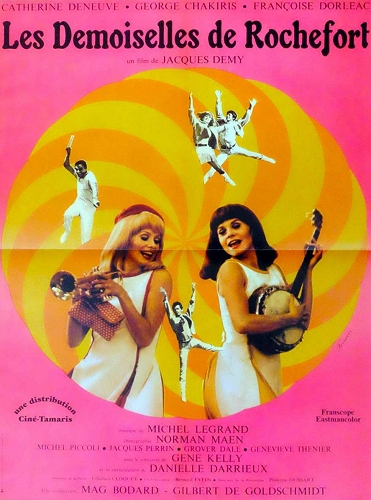
I think what I like about the fact a "conventional musical" influencing "La La Land" is that the latter is a meta-commentary on musicals (and the romanticized/idealized view of life as presented through art in general). Like, "La La Land" has a lot of "anti-musical" moments in it; moments where it seems like it's going to lead into a narrative trope of musicals, but then something more realistic or mundane happens instead. This happens at the movie theater, when Ryan Gosling almost kisses Emma Stone... and then the projector breaks. All the idealistic tropes of musical genre are subverted, as if to say the distorted view of life is incompatible with the reality of life.I was under the impression that the other 1960s Jacques Demy/Catherine Deneuve musical ‘The Umbrellas of Cherbourg’ was the influence on ‘La La Land’ but it’s much closer to ‘The Young Girls of Rochefort’. One of the main themes is very similar in the other film, plus it’s full of brightly costumed, always colour coordinated, people dancing. ‘The Young Girls of Rochefort’ is a conventional musical with people speaking as normal and then spontaneously breaking into singing and dancing, so I preferred it to ‘The Umbrellas of Cherbourg’. The songs are catchier, the characters are endearing and frivolous and I really wanted all the romances to come together. It’s a pleasure the way the will-they-won’t-they farce is teased out to the last frame. Gene Kelly is just as light on his feet 15-years after ‘Singin’ in the Rain’, it’s like he’s floating above the ground. The only flaw was the bizarre little serial killer subplot which goes nowhere.
the opening scene of people getting out and happily dancing on their cars in a grand sequence is straight out of the kind of mindlessly-cheerful musicals they later "subvert". The people aren't joyfully singing and dancing out of any expression of their true characters or feelings, they're doing it purely as an aesthetic indulgence.
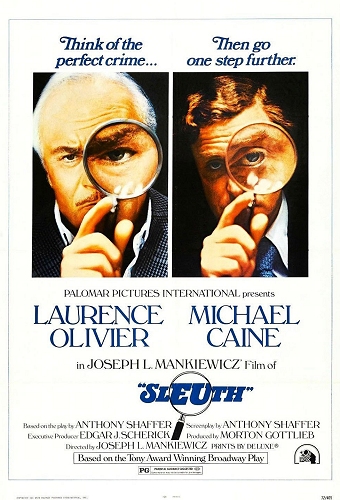
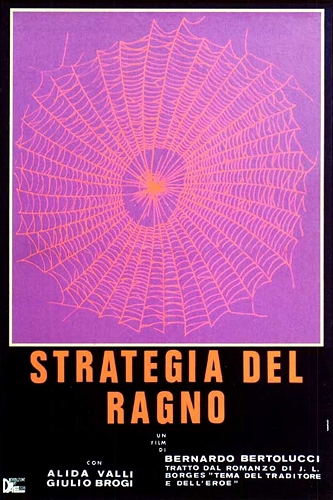
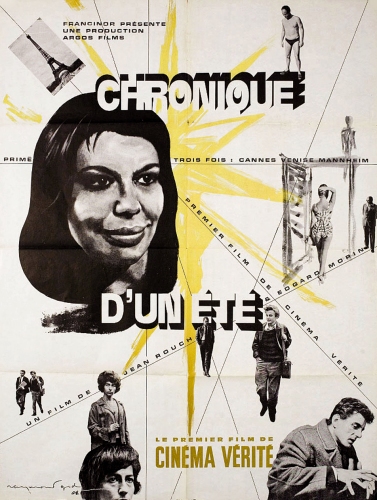
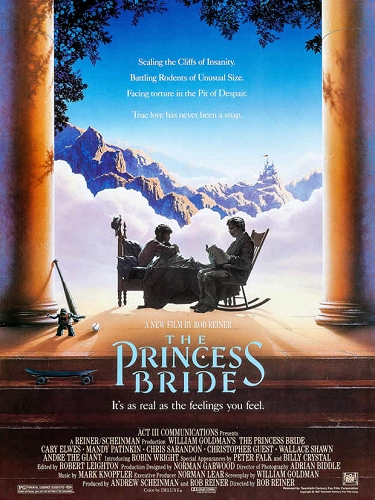
This has always been my thoughts on the "1001" guide in general. No disrespect to anyone who holds it in esteem, I just find that there are many films on the list that are only included because they are historically important from a technical perspective rather than because they are artistically accomplished in some way.‘Chronicle of a Summer’ is another one of these French New Wave films that I’m glad existed, to deconstruct the rules of film-making (that of a documentary in this case) but I’m not sure we actually need to watch it any more.
More to this point, this is the other reason I don't take as much stock in the "1001 movies" guide as some other people. Going back to the "technically innovative" criteria asserted across most of the list, sometimes this criteria is employed regardless of the actual moral or thematic content of the film; hence the inclusion of something like "Birth of a Nation" and "Triumph of the Will," two of the most universally condemned films ever made.Out of date topics are discussed by people with outmoded views.
Yeah, we've discussed expectations in musicals a bit before, and that could be a whole sub-thread.I read quite a few reviews talking about how that opening dance sequence had rubbed them the wrong way.
I've never seen this, but I did see the remake in 2007. I think it's supposed to be almost exactly the same, except Michael Caine said he took delicious pleasure in playing the opposite role this time round. I'm sure watching both in close proximity would be an interesting trip...Sleuth (1972)
This is definitely one for fans of ‘Knives Out’, a clever mystery playing with the conventions of the mystery genre.
This has always been my thoughts on the "1001" guide in general. No disrespect to anyone who holds it in esteem, I just find that there are many films on the list that are only included because they are historically important from a technical perspective rather than because they are artistically accomplished in some way.
I've never seen this, but I did see the remake in 2007. I think it's supposed to be almost exactly the same, except Michael Caine said he took delicious pleasure in playing the opposite role this time round. I'm sure watching both in close proximity would be an interesting trip...
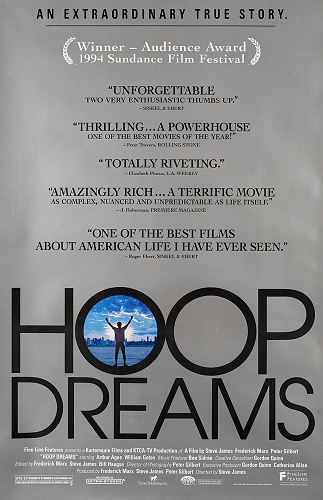
Yeah, and Jude Law doing a sort of nuevo-Alfie opposite him. Great meta-ness.Oooh, I knew there was a remake but didn't know Caine was in the other role.
Hoop Dreams is great btw, but I unfortunately had to hear Roger Ebert and several other critics repeatedly call it the greatest doc of all time before I gave it a shot, so of course it didn't live up to that hype.
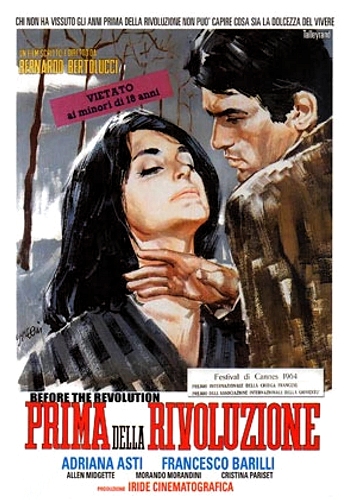
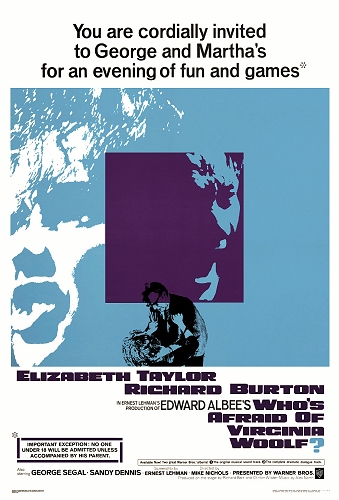
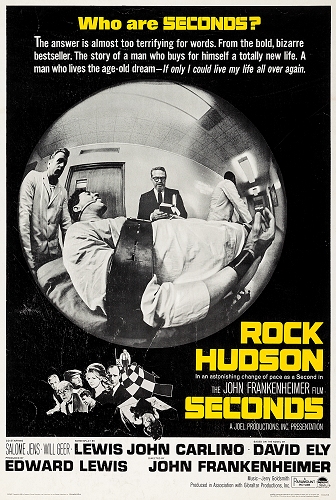
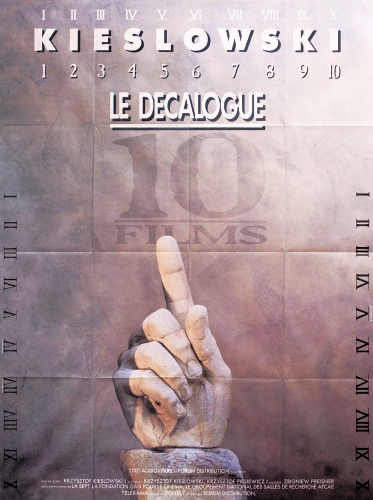
I enjoyed this film, and will admit I was caught offguard at the ending. I can't help but wonder if this was an influence for Tim Burton's works. The exaggerated sets brought Beetlejuice to mind, specifically the wedding scene. I am no videophile, nevertheless your list is enticing. Intolerance may be next.96 years ago...
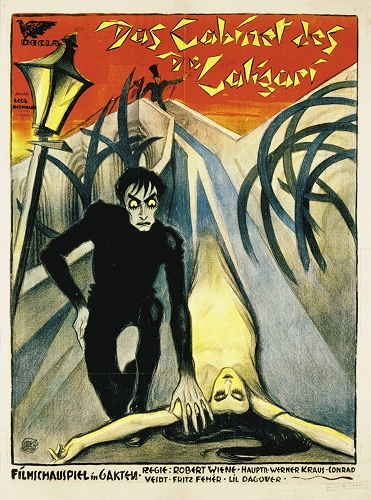
The Cabinet of Dr. Caligari (1920)
Director: Robert Wiene
Country: Germany
Length: 75 minutes (1 1/4 hours)
Type: Silent, Horror, Expressionist
This was a really excellent watch but to be honest I probably enjoyed the music the most and the film was a nice accompaniment. The unsettling discordant Jazz-Rock soundtrack by Donald Sosin, was exactly what the film needed. The madder the characters/story gets, the more unhinged go the musicians. At times it felt like the mood Wendy Carlos created for 'The Shining'.
The exaggerated set designs took some getting used to. For example... at first you just see some white boxes crudely daubed on a wonky wooden wall. Then you realise they are supposed to be Gothic windows. Throughout the "lighting" is created by the paint on the sets (or actors faces) and not by actual light sources. I found myself forgetting the literal look and just taking the intended effect in by the end. Perhaps it's not supposed to look as sharp and clear as the 4K restoration I watched? With much more contrast and less "stagey" set detail visible, the weird look of the scenes might be more effective.
The best scene features Caligari being chased around by onscreen text that appears as if my magic in the air, taunting him. I'm not sure how the FX were achieved but it was impressive. Perhaps they exposed the animated text onto the negative, wound it back and then filmed the live-action scene? Maybe they simply painted it onto the negative in black paint afterwards?
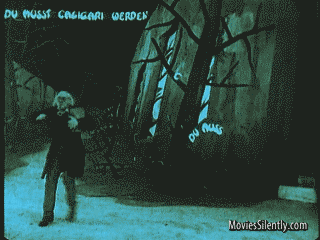
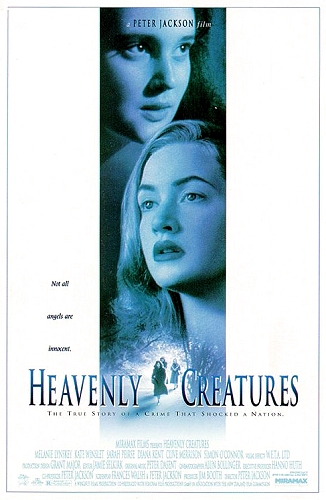
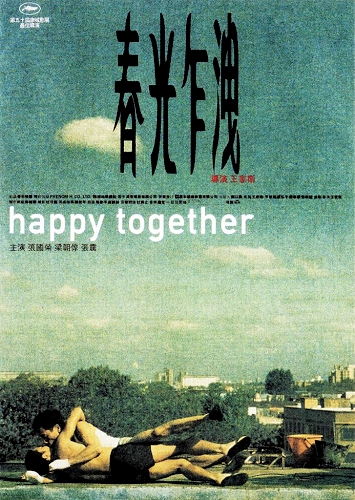
I watched this recently last year and realized I had always confused it with "Fierce Creatures" (1997)Heavenly Creatures (1994)
I'm not sure if it's certain that the relationship between Juliet Hulme and Pauline Parker was romantic/sexual, or just extremely intense but in the film it's played that way. As a joyfully passionate and innocent first lesbian romance, that is crushed and twisted by 1950s moralising and unsympathetic parents.
